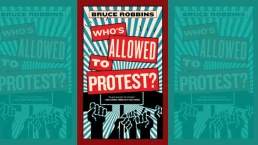The U.S. political system is owned by corporations despised by the American people. Luigi Mangione is the result.
By Sunjeev Bery, The Intercept
The murder of UnitedHealthcare CEO Brian Thompson is a profoundly revealing moment in American politics. Not only has it opened the floodgates of public anger at health insurance companies, but it has also demonstrated just how avoidant most U.S. politicians are when it comes to acknowledging that anger or doing anything about it.
The surge of online excitement surrounding the man accused of murdering Thompson, 26-year-old Luigi Mangione, is a symptom of a much larger problem: an oligarchic U.S. political system that repeatedly fails to respond to the needs of the people. In the absence of effective government, vigilante violence becomes much more likely.

Mangione has found popularity precisely because the man he is accused of killing ran a company that routinely boosted profits by pushing its customers closer to illness and death. Earlier this year, a U.S. Senate committee investigated UnitedHealthcare and determined that the insurance company frequently denied nursing care to patients who were recovering from falls and strokes in order to boost its profits. Health news platform Stat reported that a UnitedHealthcare subsidiary called NaviHealth systematically denied care for seriously ill seniors. Thompson himself was facing a class-action lawsuit for insider trading amid a Department of Justice investigation.
Of course, it is easy to treat UnitedHealthcare’s abuses as the actions of just one evil company run by a handful of bad men. But these companies are owned by Wall Street. Institutional investors and shareholders reward and punish corporate executives based on the profits they generate and the share prices they produce. In causing harm to so many Americans, Thompson was meeting the demands of his corporate board members and the even wealthier interests that they serve.
These profits generated by denying Americans medical care are in turn converted into campaign contributions and lobbying dollars that block our political system from doing anything about it. In 2023 and 2024, UnitedHealth Group’s political action committee reported donating $2.95 million to federal campaigns and spending $16.62 million on lobbying expenses. Meanwhile, the top federal recipient of campaign contributions from UnitedHealth Group executives and employees was Kamala Harris. Perhaps this is why Harris flip-flopped on abolishing private health insurance during her first of two failed runs for president: she knew just how much money was on the table.
Recent Posts
Everyone Is Allowed To Protest
February 13, 2026
Take Action Now Tied up with the apparently very longstanding tradition of claiming that all opponents of atrocities are purely engaged in what has…
Abolition Is Still The Only Way Out Of This
February 13, 2026
Take Action Now Forget the useless so-called “reforms” to ICE and policing currently on offer. We need much more fundamental change.By Andrea J.…
Leading Papers Call For Destroying Iran To Save It
February 11, 2026
Take Action Now The opinion pages of the New York Times and Washington Post are offering facile humanitarian arguments for the US to escalate its…
Despite Marco Rubio’s Warnings, This is the Time to Go to Cuba in Solidarity Against the Latest U.S. Aggressions
February 10, 2026
Take Action Now When visiting Cuba, one can see quickly the terrible effects of the almost seven decades of the U.S. economic blockade of Cuba.By…




